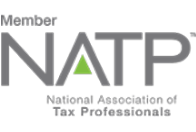The new year is almost upon us with only just a couple days before we greet and welcome 2024. And like a yearly tradition, the Internal Revenue Service adjusts the rates or basis of several tax provisions to ease the effect of inflation.
It is important for taxpayers, especially the self-employed and small business owners, to keep abreast of the latest tax changes in order to stay compliant, avoid penalties, maximize tax savings, and take advantage of retirement saving options that are available for you.
Here is a summary of some of the popular changes coming in 2024.
Standard Mileage Deductions
The optional standard mileage rate for every business mile driven in 2024 will be 67 cents per mile. This is 1.5 cents higher than the 65.5 cents per mile rate in 2023.
The standard ate for miles driven for medical or moving purposes is 1 cent lower in 2024 at 21 cents per mile (from 22 cents per mile in 2023) while the standard rate for miles driven in the service of charitable organization remains unchanged at 14 cents per mile.
Qualified Business Income Deduction (Section 199A)
Qualified business entities, independent contractors, and freelancers with pass-through income may deduct up to 20% of their taxable income to reduce their tax liability. However, the QBI deduction is subject to a threshold that is updated on a yearly basis by the IRS. Below are the thresholds amount and phase-out range for 2024 based on your filing status:
| Filing Status | Threshold Amount | Phase-in Range Amount |
| Married Filing Jointly | $383,900 | $483,900 |
| All Other Filers | $191,950 | $241,950 |
Income Tax Rates, Standard Deduction, and Capital Gains Tax Rate
Looking for updates on these items? Click here.
Gifts
Beginning 2024, the annual gift limit is adjusted to $18,000 (from $17,000 in 2023) while the lifetime gift tax exemption is increased to $13.61 million (from $12.91 million in 2023). Click here to learn more about this provision.
Interest on Education Loans
In 2024, the $2,500 maximum deduction for interest incurred from qualified education loans begins to phase out for taxpayers with adjusted gross income (AGI) of more than $80,000 ($165,000 for joint filers). While having an AGI of at least $95,000 ($195,000 for joint filers) will completely phase out this deduction.
Health Savings Account (HSA)
The HSA 2024 contribution limit for self-only coverage is $4,150 ($3,850 in 2023) while families can contribute up to $8,300 ($7,750 in 2023). Catch up contribution limits for aged 55 and over remains at $1,000.
Eligible Long-Term Care Premiums
In 2024, the maximum amount of deductible eligible long-term care premiums will be as follows:
| Age Bracket (at the end of the Tax Year) | Maximum Amount |
| 40 and below | $470 |
| 41 to 50 | $880 |
| 51 to 60 | $1,760 |
| 61 to 70 | $4,710 |
| 71 and above | $5,880 |
Retirement Plans
We have a dedicated blog for the 2024 figures for Solo 401k and Individual Retirement Arrangement (IRA). Click here to access its latest updates.
Failure to File Tax Return Penalty
If the required return to be filed in 2025 is sixty (60) days late from due date, the failure to file penalty will be 100% of the underpayment or $510 whichever is less.
Underpayment Penalty
The IRS has retained the huge underpayment penalty of 8% which was effective October 1, 2023, and was extended until the first quarter of 2024. This can mainly affect the self-employed and small business owners since most of their income are not subject to withholding tax and are therefore required to make quarterly estimated tax payments. Click here to read our dedicated blog on this topic.
Want to learn more?
You may want to consult and work with 1099 Accountant – We offer online bookkeeping, online advisory services and online tax and accounting services. We offer reasonable rates. We only work with independent contractors, freelancers, and one-person business. We work with locum tenens from California to New York City and everywhere in between. Yes, even Hawaii!
Contact us toll-free (855)529-1099 or make an appointment for a free consultation. Contact Us











